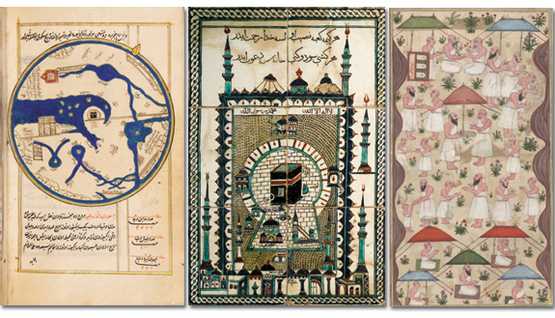IT is so fascinating how phases are formed by the threading together of occurrences, one quickly following the other as if by design to build a whole.
This one began a few months ago with a novel by Elif Shafak. Forty Rules of Love came highly recommended. It was a great read. It was to mark the start of a Turkish spell.
Soon afterwards the mayor of Istanbul was greeted in Lahore by a very warm Chief Minister Shahbaz Sharif and the prospects of doing business here. Lahorites were promised Istanbul’s bridges complete with the trademark Istanbul buses to move them around.
All of a sudden, a school set up in partnership with the Turks was mentioned as the best available option for children. It was hailed for combining new education with the right kind of discipline.
It was an ideal choice for parents who had no escape but to ensure modern education to their children but who had a duty to guard the impressionable minds against the evils which can — which do — generally accompany education these days.
Then, if somewhat differently tasked than in Shafak’s engaging story, the venerable Maulana Jalaluddin Rumi emerged on the scene. The Maulana graced Lahore on the occasion of a conference organised in his name, to help guide the depressingly confused locals out of the quagmire they have been unable to wiggle out of on their own.
This Rumi was assigned with reconciling modernity with traditional Islam — one objective that has routinely found Pakistani remedy-seekers to court the company of the Sufis.
If this were not enough evidence of the increasing Turkish presence in the surroundings here, not too long afterwards, a friend proudly revealed he was joining a media organisation to be financed by Turkish money. Turkish buses, Turkish bridges, the much-needed Sufism in this case with a Turkish tinge to it, Turkish schools, Turkish newspaper.
Not to speak of the occasional bucking-up visits here by senior Turkish officials cast in a vital role because of their country’s important positioning in Nato and the war on terrorism and the resultant similarities between Turkey and Pakistan.
The pace at which the ‘Turkisation’ of Pakistan was taking place, the country, or at least some more developed parts of it such as Lahore, looked all set to qualify for inclusion in the European Union. There was no cause for complaint as yet. The real drama was to follow.
The preceding imports were received without too many complaints and they set the stage nicely for Bahlul, Bihter & Co to join the growing Turkish party here.
As this chronology of events indicates, Ishq-i-Mamnu was by no means the beginning of an invasion of our space — this time by a brotherly country. It was part of a steady expansion, a part whose potential was first brought out when the culture reporter suddenly asked to go to Istanbul, to interview Bihter, he readily confessed.
The full impact was realised when some newspapers condemned the content of Mamnu as being alien to Pakistani culture and when local showbiz people objected to the Pakistani channels’ rush to buy the Turkish plays for screening here following Mamnu’s huge success.
The argument against the import of foreign plays that could hurt local interests is similar to the one where certain Pakistani manufacturers are asking for a protection regime before trade with India is opened. This is a point relevant to all areas — bridges etc — where the Pakistani brand is available but is being overlooked in favour of the foreign in the name of quality.
Yet, this is a whole package where users cannot pick and choose. The borders are set to dissolve between friendly countries faster than between two old hostile neighbours. Unless the reasons are as acrimonious as the ones cited by Difa-i-Pakistan Council to hold an anti-India march in Lahore on Sunday, the business or the cultural argument cannot quite stall imports.
This has already been proven by the screening of Indian films in Pakistan after pressure from Pakistani distributors and cinema owners. This came about in the face of patriotic protests by local filmmakers who sometimes tried to block outside competitors by resorting to branding their fare as obscene and unfit for consumption here.
This is a dangerous line for performers to take, especially in a country where art, regardless of its source, can so easily be scandalised.
As Turkey insists on playing a teacher in all these areas, its imports and influence in Pakistan are set to increase and this will only augment a presence that has always been there.
The Regional Cooperation Development that grouped Pakistan, Iran and Turkey was overtaken by the promise and resourcefulness of the Middle Eastern model. The acronym lost its relevance when the RCD folded in 1979, aged 15, but Turkey continued to be looked upon in Pakistan as a prime source that could at least inspire certain modifications here if not outright reform.
Mustafa Kamal Ataturk was forever at hand to fuel political discussions in a Pakistan badly and always in need of a saviour. That saviour was presented to us latest in Gen Pervez Musharraf, only soon into his term, the general and his image-builders found the comparison incompatible with their realities, leaving plenty of room for Maulana Rumi to try and reconcile two opposing Pakistans with an effort more than a decade later.
Turkey as a legacy of Ataturk has always engaged the Pakistanis. Groups of wise men have always advised the people of this country to adopt the Turkish model of giving the military a constitutional role in the government. That route politicians here have found hard to break and they have broken it at their peril.
Principally and effectively the Turkish power-sharing rule sustains the government in Islamabad even when Istanbul itself has moved to empower the politicians. This is one Turkey that has left Turkey but remains in Pakistan.
The writer is Dawn’s resident editor in Lahore.


Leave a Reply